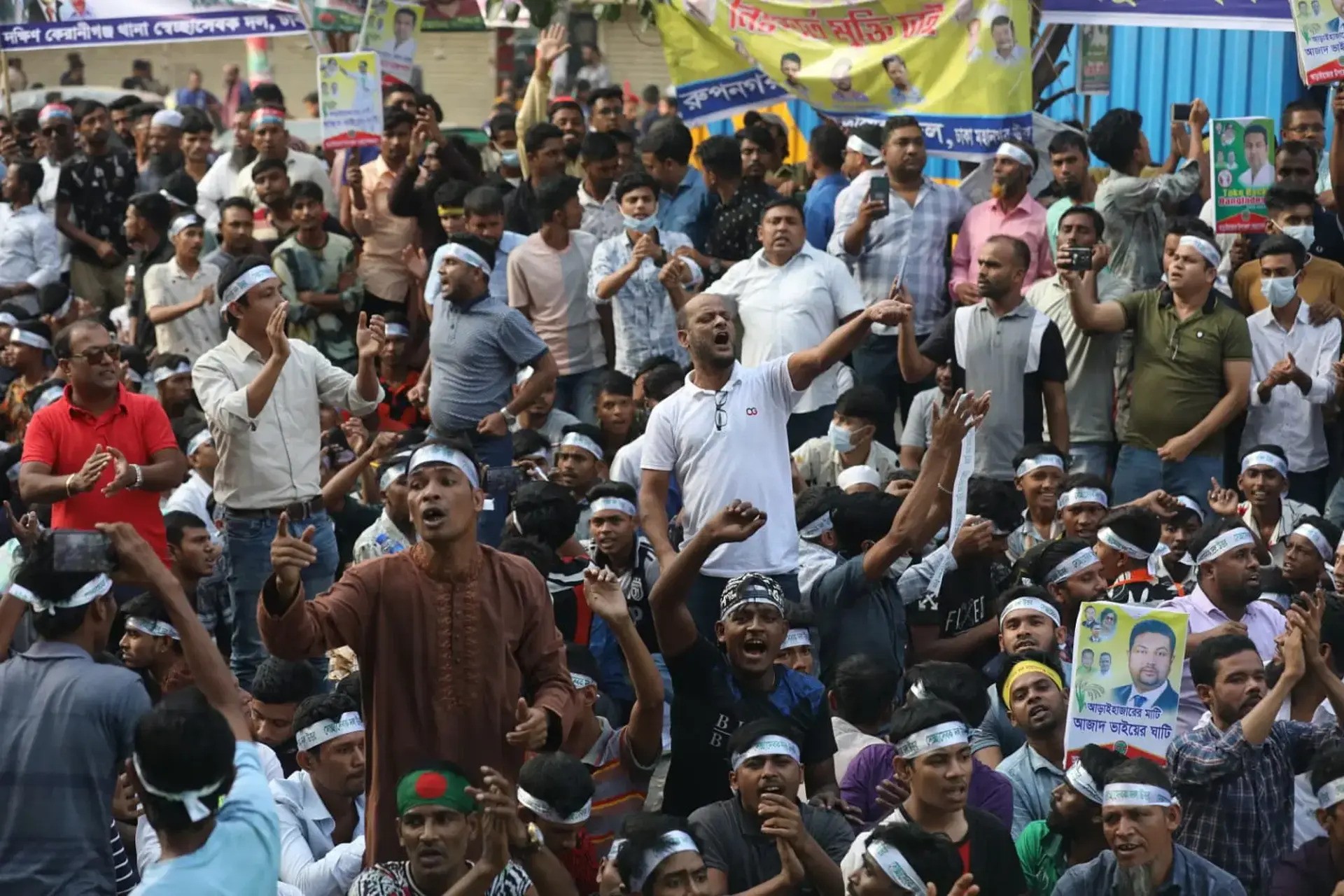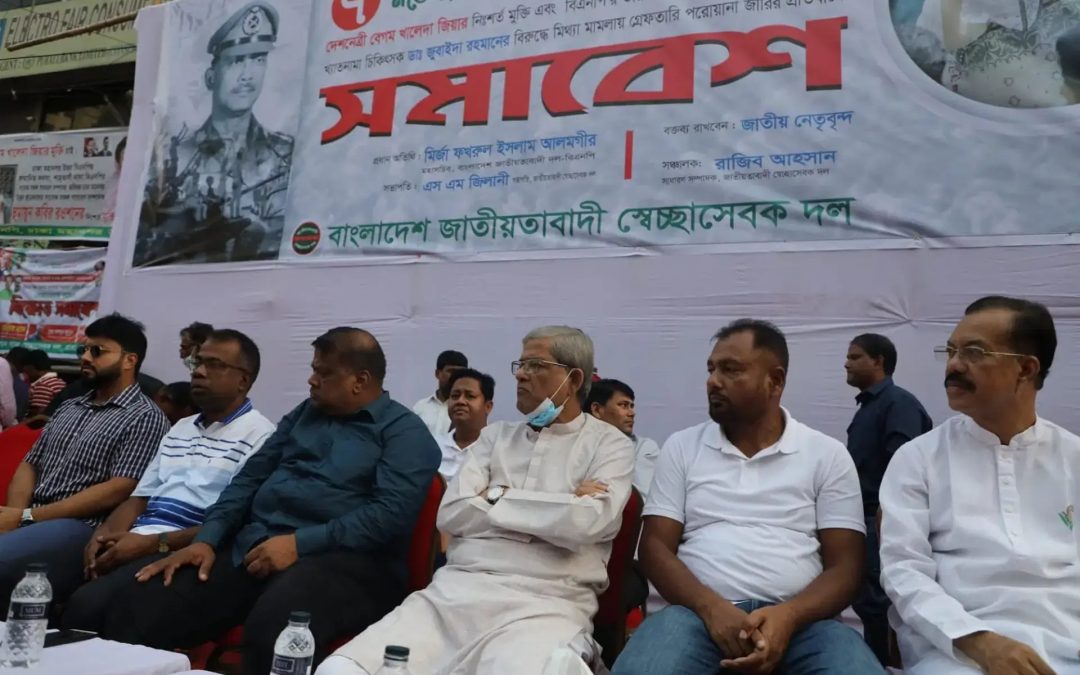In the capital, Nayapaltan, Mirza Fakhrul Islam Alamgir addressed a Nationalist Volunteers protest gathering|Photo: Prothom Alo
In the ever-changing tapestry of global politics and economics, Bangladesh finds itself navigating a storm of challenges.
At the heart of the current discourse lies a critical question: why is the government securing loans from the International Monetary Fund (IMF)?
This issue, steeped in political and economic implications, has sparked heated debates.
BNP Secretary General Mirza Fakhrul Islam Alamgir’s recent remarks encapsulate the frustrations of a nation questioning its leadership’s financial strategies.
This article delves deep into the concerns raised, the accusations leveled, and the broader implications for Bangladesh’s future.
IMF Loans: A Necessary Lifeline or a Questionable Gamble?
Mirza Fakhrul Islam Alamgir, addressing a rally organized by the Nationalist Volunteers Party in Nayapaltan, Dhaka, raised a poignant question: if the finance minister previously dismissed the need for IMF loans, why the sudden change in stance?
Fakhrul described this move as the government playing a “dugdugi” (drum) to distract the public.
While loans can provide a temporary cushion during economic crises, he warned of the dire consequences of mismanagement, questioning how the debt would be repaid in a nation grappling with dwindling reserves and rampant corruption.
Allegations of Corruption and Financial Mismanagement
According to Mirza Fakhrul, the government’s borrowing habits reflect deeper systemic issues.
He accused the ruling party of bankrupting the country through theft, corruption, and capital flight.
Pointing to electricity sector controversies, he alleged that certain beneficiaries, who profited from dubious deals, have now become billionaires abroad, leaving Bangladesh to bear the brunt of these decisions.
This misuse of resources, he argued, has pushed the nation into an economic quagmire, with IMF loans serving as a stopgap rather than a sustainable solution.
Justice or political tool? The Case Against Tarique Rahman
The protest rally also highlighted the legal cases against BNP Acting Chairman Tarique Rahman, his wife Zobaida Rahman, and other party leaders, which Fakhrul called baseless and politically motivated.
He claimed the government was using these cases to suppress dissent and divert attention from pressing national issues.
Fakhrul alleged that the Awami League has long relied on legal cases as a weapon, undermining democratic processes and silencing opposition voices.

Among the workers and leaders that showed up for the demonstration|Photo: Prothom Alo
The Role of Historical Narratives in Modern Politics
Fakhrul also criticized the organization Mayer Kanna (Mother’s Cry), which demands the removal of Ziaur Rahman’s grave, accusing it of being a tool to derail the opposition’s movement.
He linked this campaign to a broader conspiracy to tarnish Ziaur Rahman’s legacy and disrupt efforts for democratic reform.
Fakhrul underscored the importance of recognizing such tactics as part of a larger strategy to maintain power by stifling opposition movements and rewriting history.
The Call for Change: A Movement for the People
At the core of Mirza Fakhrul’s address was a call for systemic change.
He reiterated that the BNP’s movement is not merely for political gain but for restoring democratic rights, including free and fair elections, freedom of assembly, and the right to vote.
In order to guarantee legitimate elections, Fakhrul urged that the administration resign and hand authority over to an impartial caretaker government.
This rallying cry reflects a growing public discontent with governance and the urgent need for accountability and reform.
Verdict
Bangladesh stands at a crossroads.
The decisions made today will ripple through generations, shaping the country’s economic, political, and social landscape.
As debates over IMF loans, corruption, and political suppression intensify, the nation must confront uncomfortable truths about its governance and priorities.
Mirza Fakhrul’s impassioned plea serves as a reminder that leadership must prioritize the people’s welfare over political survival.
Restoring trust and securing a better future for all Bangladeshis requires openness, honesty, and a shared resolve.

